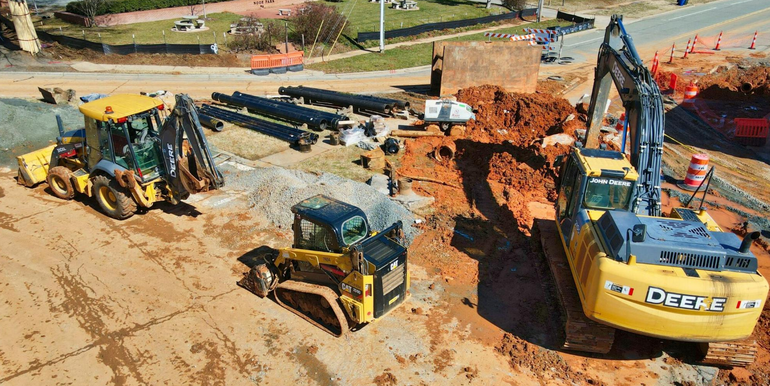Public construction projects costing over $1 million would be required to use apprentices, under a bill that union supporters say will guarantee the future of the state’s trade workforce.
“It’s about building a workforce that is local, highly trained and ready to meet growing demands of the construction industry. We have aging infrastructure, ambitious clean energy goals and a retiring generation of skilled workers. We need to be proactive about training new talent now,” Khary Brown, a registered electrical apprentice in IBEW 103, told the Joint Committee on Labor and Workforce Development on Tuesday.
The requirements within the Rep. Marjorie Decker and Sen. Lydia Edwards bill (S 1303 / H 2085) scale up over time. Within six months of its passage, 5% of all hours building public construction projects will have to be done by apprentices. After one year, 10%, and after two years, 15%.
Massachusetts Building Trades Union President Frank Callahan said outside of union apprenticeship programs, which train 75% of all construction trade apprenticeships in Massachusetts, some contractors don’t use any apprentices at all.
Young people need the on-the-job training to graduate from their programs and bolster the state’s construction workforce, he said.
“The so-called worker shortage doesn’t exist in our registered apprenticeship programs. Every year when applications open for our apprenticeship training programs, unions receive two or three times more applicants than they have open slots,” said Chrissy Lynch, president of the Massachusetts AFL-CIO.
She continued, “Without active projects where apprentices can earn their job site hours, apprentices could take longer than four years to complete their training. This bill offers a way to expand apprenticeship opportunities to more skilled workers, while also fulfilling the state’s commitment to workforce development.”
Responding to a question from Rep. Kenneth Sweezey of Duxbury about how many projects meet the threshold above $1 million, Callahan said “that would cover most public projects.”
Sweezey also asked about the apprenticeship-to-journeyman ratio. Under current state law, a journeyman electrician cannot have no more than one apprentice under their direct supervision on a jobsite.
Reforming the apprentice ratio is a topic of discussion in Massachusetts and other states, where some business advocates argue having a lower ratio, with two or three apprentices to every one journeyman, would allow the workforce to expand more quickly to support the state’s housing, infrastructure and electric grid needs.
Sen. Bruce Tarr filed a bill (S 290) to allow two apprentices to work under an expert electrician’s direct supervision. That bill received a hearing on April 25, and has not yet received a referral from the Joint Committee on Consumer Protection and Professional Licensure.
“Do you guys have any opinions as we go through this bill specifically, or openness to amending any current apprenticeship ratios in order to better get to the heart of what we’re trying to do here?” Sweezey asked.
Renee Dozier, a licensed journeyman master electrician with IBEW local 103, strongly opposed changing the one-on-one ratio.
“Throughout my career, I have seen firsthand the consequences of unlicensed and untrained electrical work, including fires that have resulted in significant loss and tragic loss of life in every one of these cases. Proper training and licensure could have made the difference,” she said. “One-on-one ratio — this is not a burden, it’s a safeguard. These standards ensure that electricians have the technical knowledge and hands on experience that the job is done right and safely.”
Sweezey responded, “that makes complete sense.”

